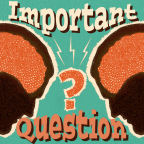A Review of Baldur’s Gate 2 by Matt Bell from Boss Fight Books
I’m reviewing all of the Boss Fight Books releases, so subscribe to this channel and click the bell notification icon to be sure you don’t miss future reviews.
I’m a fan of Matt Bell’s work, so when I found out that one of the Boss Fight Books I’d be reading and reviewing was written by Matt Bell, I had to investigate to confirm that the Matt Bells in question were the same. Matt Bell’s fiction style is what I would call clinically emotional. He’s precise with his words, hyperfocusing on specific details without giving way to unnecessary exposition. He’ll offer a few terse lines that bloom into a story more affecting than what other writers could do with 100 times as many words.
Let me give you an example, a few lines from Wolf Parts, a short collection of stories that, let’s say, expands the story of Little Red Riding Hood:
“From inside the wolf’s stomach, the grandmother could only hear every third or fourth word her granddaughter spoke, and only slightly more of the wolf’s responses. She heard teeth and eyes and grandmother. She heard better and my dear and come closer, come closer.” (pg. 15)
So much packed into so little.
So how did I expect Bell to handle telling the story of Baldur’s Gate 2, a Dungeons & Dragons video game birthed from a genre of storytelling known not for its brevity but for its relentless exposition? 90% of a fantasy novel is telling the reader what the characters are doing. And only 10% is letting them do it.
I wasn’t sure what to expect. I’ve never played Baldur’s Gate 2. I know it’s an isometric perspective role-playing video game released in 2000. But I don’t know much more. My only investment with this book is my knowledge of Matt Bell’s fiction writing.
In Baldur’s Gate 2 Bell spends a great deal of time detailing the plot of the game. Frequent viewers of my Boss Fight Books review videos will know that my least favorite books in the series are those that do this very thing, that rely heavily on point-by-point exposition, on detailing the story arc, I assume for the benefit of the uninformed reader. And I understand such detail may seem necessary. But I don’t think it is. Unless we must know plot elements in order for the Boss Fight Books author to tell their story, leave the game’s plot out. Much more interesting is what the authors tell between the recitation of the game’s plot.
Bell does here between that recitation what a lot of other Boss Fight Books authors do. Mix in personal anecdotes along with snippets of developer interviews to support the game as a cultural and personal touchstone, to validate the game as an artifact. Where Baldur’s Gate 2 by Matt Bell begins to shine is when Bell uses the occasion of writing this book to mine his adolescence for stories of embarrassment and shame. Bell’s story is one of a kid desperately trying to keep his love of video games, comic books, and all things nerdy a secret for fear of not being perceived as a mature person.
“When I was growing up, almost everything I loved was deeply uncool and embarrassing, and so I learned, year by year, to hide more of that part of me away…I believed then that the person I wanted most to become wasn’t someone other people would accept…and so I pretended to be someone else whenever I stepped outside of the house.” (pg. 111)
I say this is where the book “begins to shine” because Bell never fully realizes the potential he sets up. On page 60, about halfway through the Book (before the above passage), bell breaks the 4th wall in an interesting way, shifting from the narrative he’s creating in the game to an image of him, the writer, actually writing as his characters cycle through their idle animations:
“Outside, rain is falling. Two seagulls circle. A predictable volume of smoke escapes nearby chimneys. An Amnian soldier standing on the street corner says, “No trouble out of you,” a fairly soft warning to my incredibly well-armed party. He repeats himself over and over, every few seconds. My characters turn their heads, idle their weapons while I write the above paragraphs. When I’m ready, we depart.” (pg. 60)
This is what I wanted to see more of. I wanted to experience Bell the writer as he becomes comfortable with the nerdy, fantasy-loving adult self that he is.
Part of me wonders if Bell felt this type of self-referential storytelling was beneath him. In the literary world–the world Bell exists in–a clever, real-time shift from fiction to real life would be dismissed as trite and possibly as too clever-for-the-sake-of-clever. But Bell’s audience, Boss Fight Books’ audience, isn’t the literary elite. We’re people who want interesting stories about our favorite games. In that sense, much in the same way Bell tried most of his life to be an adult by hiding his fantasy interests, here he seems like he’s trying to be a more accessible writer by hiding his literary worth. This book could have used a bit more of Matt Bell being Matt Bell.
But is it still worth reading. Yes, I think so. It will surely resonate more for readers already fans of, or at least familiar with, Dungeons & Dragons or the Baldur’s Gate series. For everyone else, maybe not. There are moments of promise, but Bell seems unwilling to commit for some reason.
But if you liked the Wolf Parts passage I read earlier–AND YOU SHOULD– I highly recommend you check out Matt Bell’s fiction. Start with his story collection How They Were Found, and then move onto Wolf Parts or Cataclysm Baby.
Mentioned
- Boss Fight Books review playlist
- Baldur’s Gate 2 by Matt Bell from Boss Fight Books
- Matt Bell homepage
Music Credits
8bit Dungeon Level Kevin MacLeod (incompetech.com), Licensed under Creative Commons: By Attribution 3.0 License, http://creativecommons.org/licenses/by/3.0/


